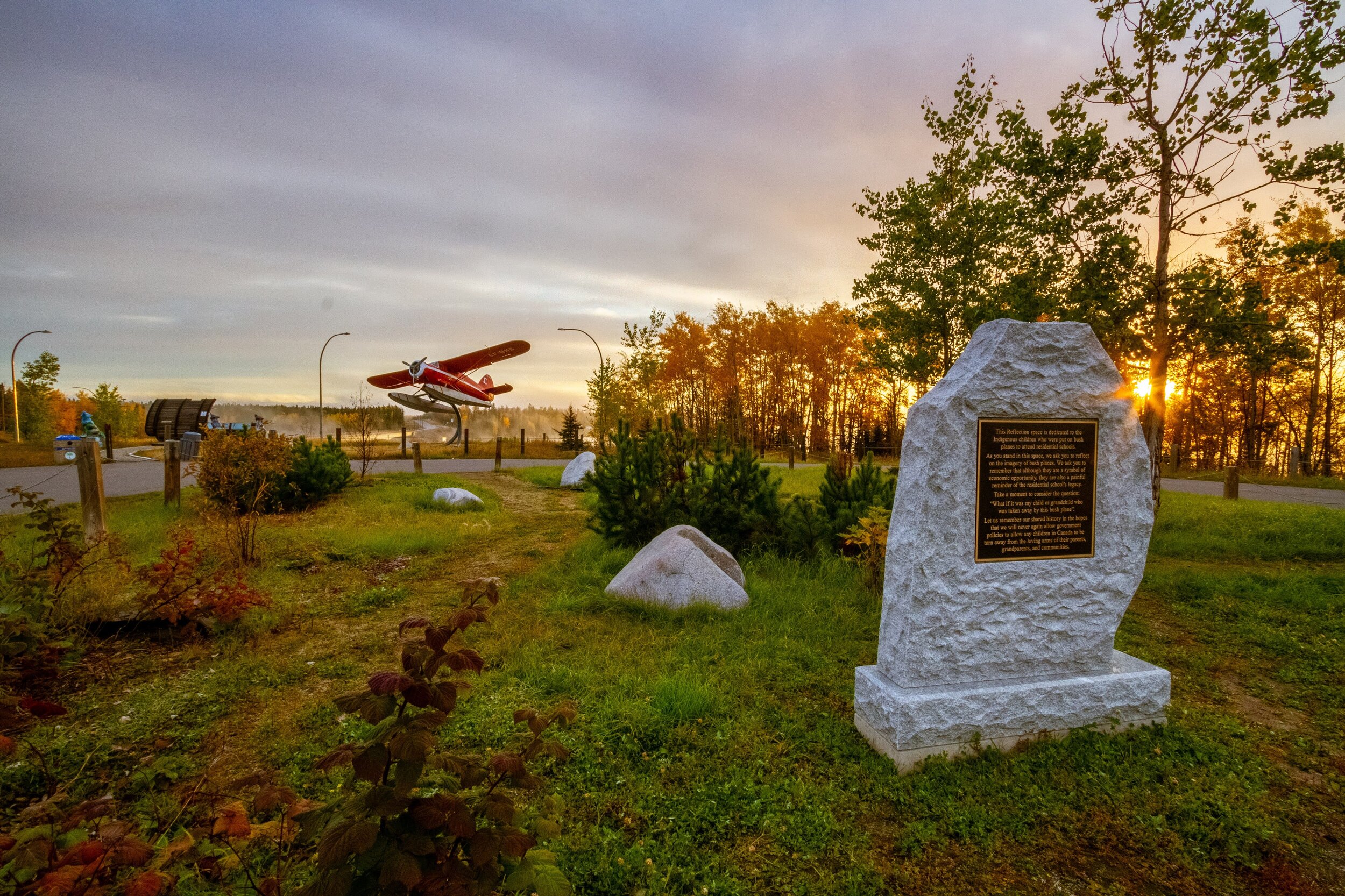
Thompson Urban Aboriginal Strategy
The Thompson Urban Aboriginal Strategy, (TUAS) established in 2005, operates as a community-based strategic planning committee that provides an environment for collaboration, dialogue, and alignment for efforts and investments focused on improving social and economic opportunities of Aboriginal people living in Thompson. With Aboriginal people represent 60% of Thompson population, TUAS is committed to the health and well-being of urban Indigenous people in Thompson. TUAS has a focus on six priority areas, often referred to as the pillars: Culture, Education and Training, Employment, Housing, Youth, and Woman and Children.
The committee, inclusive of education, industry and local business, Indigenous Organizations, Non-profit Sectors, and provincial and municipality representation continue to collaborate and work towards reconciliation.
Residential School Monument
One area of focus is developing the Residential School monument area to create a space of reflection and healing while honouring survivors and their families. The soft launch took place last year with the intent to do a community unveiling that will coincide with Orange Shirt Day on September 30th . Reconciliation between Indigenous and non-Indigenous people has never been more crucial. In light of this, we are developing a Resource Booklet to assist in learning more about the sad, abusive legacy of the residential schools and their corrective stories.
COVID-19 Support
TUAS acknowledges the hardships the last year has brought and has received Pandemic Support Funding which has been used for baby baskets for newborns. The Baby Basket Program is a maternity package that would be available to expectant mothers that have entered the hospital to give birth or are having their baby with a mid-wife, ensuring the mother feels supported and the newborn benefits from a solid foundation as there is an uncertainty of supplies due to COVID-19 restrictions.
Major investments have been made for Land-Based Education equipment. The need for utilizing the land and land-based activities is as important as ever not only to ensure that children and youth are being provided with an education that is specific to our region but to offer safe hands-on learning opportunities that allow for social distancing with programming such as trapping, fishing, food processing, orienteering, land mapping, indigenous fauna education, medicine picking, traditional science, blanket making, moccasin making, beading, drum making, food preparation, teachings from elders, indigenous language teachings. Virtual workshops and activities have also been in the works as there needs to be a balance of virtual options and outdoor land-based activities available. Online activities, mentoring and relationships are more important than ever especially to those youth in remote areas, urban areas where there is now limited access to venues.
